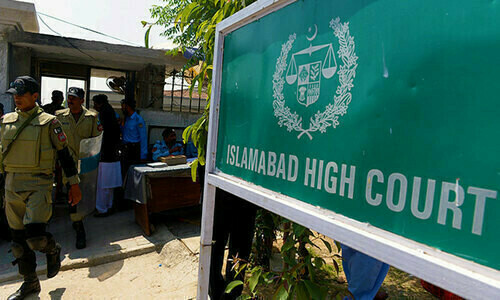WHILE the Council of Common Interests may have approved the controversial 2017 census in April of this year, Sindh continues to have major reservations about the exercise. This is reflected by the fact that the Sindh government has written to the Senate chairman and the National Assembly speaker calling for a joint session of parliament to discuss the issue. According to the Sindh chief minister, the populations of Sindh and Balochistan have been undercounted. To back this claim, he has cited a Unicef survey which lists average members of a household at 7.2 for Sindh, while the census results put the number of the average household at 5.64. If these numbers are considered, based on the Unicef survey Sindh’s population should be over 61m, while the official headcount says the province is home to just under 48m people. This is no small difference and will have a major impact on the division of resources. The MQM has also raised questions about the authenticity of the census.
While the CCI has decided to conduct a fresh headcount by the end of this year, the controversy that has persisted after the 2017 exercise needs to be addressed. If Sindh has such strong reservations over the exercise, then perhaps a joint session of parliament would be the best way to arrive at a judicious solution acceptable to all. Therefore, such a session should be convened without delay so that the issue is settled. Moreover, looking ahead, a more scientific and transparent method to conduct the census needs to be introduced so that controversies do not arise in the future. For this, technology can be utilised, while best practices of developed states where headcounts are largely straightforward exercises should be studied. What is more, the constitutionally mandated period of holding a census every 10 years needs to be respected. Unnecessary delays caused by political expediency create gaps in data which affect planning on a national level. The census is a huge exercise costing billions of taxpayers’ rupees and hundreds of man-hours. The results of the exercise affect how resources are divided across the federation and how to plan for the future. Therefore, the process needs to be kept free of politics and controversy, while conducting the headcount before time is also a waste of resources. It is hoped that a positive consensus emerges from a joint session of parliament that can lead to an accurate headcount.
Published in Dawn, June 1st, 2021











































Dear visitor, the comments section is undergoing an overhaul and will return soon.